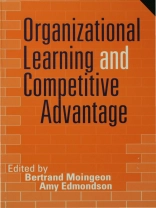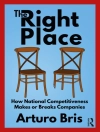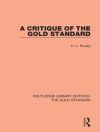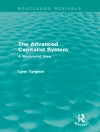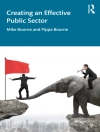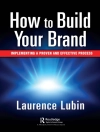`[I}n this volume, contributors from the fields of both strategic management and organizational behaviour have been brought together to explore the relationship between organizational learning and competitive advantage…. In their editorial introduction, Edmonson and Moingeon trace changes within the fields of strategy and organizational development that have encouraged a more integrative approach. On the strategy side, the emergence of the ‘resource view of the firm’ has drawn attention to the importance of firm-specific resources including knowledge and how it is acquired, as sources of competitive advantage. On the other hand, organizational development practitioners have become increasingly interested in relating their traditional tasks more firmly to strategic business issues and concerns. The topic of organizational learning can thus be seen as a bridge, which is the intention of this volume to begin constructing, between these two fields…. The papers presented in this book offer a rich variety of concepts, frameworks and provovative ideas on organizational learning and its strategic implications. In addition, the theoretical presentations are often supported by reports of the results of original research in a number of companies′
– Management Learning
`This book takes an important first step towards integrating theories of competitive advantage and… organizational learning, a rapprochement which can come none too soon for the management practitioner′ – Peter Senge, Director of the Center for Organizational Learning, MIT Sloan School of Management, USA
Organizations need to develop learning strategies to survive and develop in increasingly uncertain and changing markets. In this book, researchers from Europe and the United States explore theories of strategic management and organizational behaviour to establish a link between learning processes and competitive advantage, within a variety of organizational settings. The diverse, multidisciplinary approach takes an important step towards developing a new integrative theory of management.
表中的内容
Prologue – Chris Argyris
Toward a Comprehensive Theory of Management
Introduction – Amy Edmondson and Bertrand Moingeon
Organizational Learning as a Source of Competitive Advantage
PART ONE: LEARNING PROCESSES AND COMPETITIVE ADVANTAGE
When to Learn How and When to Learn Why – Amy Edmondson and Bertrand Moingeon
Appropriate Organizational Learning Processes as a Source of Competitive Advantage
Organizational Learning Style as a Core Capability – Anthony J Di Bella, Edwin C Nevis and Janet M Gould
Competitive Advantage from Tacit Knowledge? Unpacking the Concept and Its Strategic Implications – J-C Spender
Organizations in the Fog – Philippe Baumard
An Investigation into the Dynamics of Knowledge
PART TWO: ORGANIZATIONAL LEARNING AND STRATEGIC CAPABILITY
Resources, Capabilities and Competencies – Ashish Nanda
Core Capabilities and Information Technology – Rafael Andreu and Claudio Ciborra
An Organizational Learning Approach
Organizational Capability as a Source of Profit – David Collis
PART THREE: STRATEGIC CHANGE AND ORGANIZATIONAL LEARNING
Developing an Organization Capable of Strategy Implementation and Reformulation – Michael Beer, Russell A Eisenstat and Ralph Biggadike
A Preliminary Test
Reorganizational Learning – J Douglas Orton
Some Conceptual Tools from Weick′s Model of Organizing
The Epistemology of Strategic Consulting – James A Phills Jr
Generic Analytical Activities and Organizational Learning
